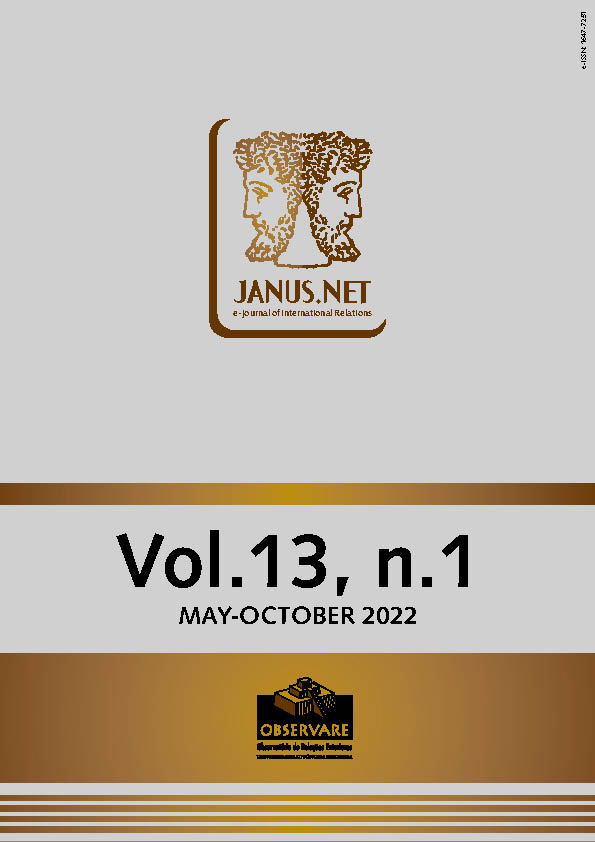Russia has been credibly accused of trying to weaken Western liberal democracies with use of digital means. Cybersecurity experts, intelligence agencies, investigative journalists, and government services, have detailed the Kremlin’s actions in illegally accessing digital infrastructures, disseminating stolen contents online, and influencing political debate on digital platforms to create dissention and polarization. These initiatives are included in a wider strategy of altering the balance of power in the international order via what are known as ‘active measures’. Two of the most consequential recent application of this kind of measures took place in 2016, in the United States Presidential Elections and in the Brexit Referendum. Reports made public with the assessments of errors committed by the United States and the United Kingdom governments show there was an insufficient protection of those two crucial public consultation processes. The mistakes made by these countries in protecting democracy from hostile agents with a high level of digital proficiency, should be a point of interest, and urgency, for the European Union. It is to be expected that this kind of influence operation will continue, and become more sophisticated, as they can target elections in Member States of the Union, but also for the European Parliament. The early detection, applying of countermeasures, and the sharing of information with the voters of this kind of attacks by foreign agencies is an important defense mechanism that needs to be strengthen and expanded.
PROTECTION OF DEMOCRATIC PROCESSES AND ELECTORAL ACTS FROM RUSSIAN DIGITAL ACTIVE MEASURES: 2016 AS A REFERENCE YEAR
PhD in Philosophy from the University of Connecticut, with a major in Human Physiology, and an MA in International Relations from the Lusófona University of Humanities and Technology in Lisbon, with a focus on the future of online political debate. International Officer of the think tank Social Liberal Movement (Portugal). Coordinator of political communication projects with the European Liberal Forum, the think tank of the Alliance of Liberals and Democrats for Europe party in the European Parliament. His main interests in the area of political research are: the future of democracy, digital solutions to societal problems, and the transition and energy independence of the European Union with its associated reduction of the security dilemma towards authoritarian and illiberal countries.
Resumo
A Rússia tem sido acusada de forma credível de tentar enfraquecer as democracias liberais ocidentais com o uso de meios digitais. Peritos em cibersegurança, agências de informação e segurança, jornalistas de investigação e serviços governamentais, detalharam as ações do Kremlin no acesso ilegal a infraestruturas digitais, divulgando conteúdos roubados online, e influenciando o debate político sobre plataformas digitais para criar discórdia e polarização. Estas iniciativas estão incluídas numa estratégia mais ampla de alteração do equilíbrio de poder na ordem internacional através das chamadas "medidas ativas". Duas das mais consequentes aplicações recentes deste tipo de medidas tiveram lugar em 2016, nas Eleições Presidenciais dos Estados Unidos e no Referendo Brexit. Relatórios tornados públicos com as avaliações dos erros cometidos pelos governos dos Estados Unidos e do Reino Unido mostram que houve uma proteção insuficiente desses dois processos cruciais de consulta pública. Os erros cometidos por estes países na proteção da democracia contra agentes hostis com um elevado nível de proficiência digital, devem ser um ponto de interesse, e de urgência, para a União Europeia. É de esperar que este tipo de operação de influência continue, e se torne mais sofisticada, uma vez que podem visar eleições nos Estados-Membros da União, mas também para o Parlamento Europeu. A deteção precoce, a aplicação de contramedidas e a partilha de informação com os eleitores deste tipo de ataques por agências estrangeiras é um importante mecanismo de defesa que precisa de ser reforçado e expandido.
Palavras-chave
Como citar este artigo
Silvestre, Ricardo (2022). Protection of democratic processes and electoral acts from Russian digital active measures: 2016 as a reference year. In Janus.net, e-journal of international relations. Vol13, Nº. 1, May-October 2022. Consulted [online] on the date of the last visit, https://doi.org/10.26619/1647-7251.13.1.2
Article received on 11 May, 2021 and accepted for publication on 3 March, 2022















